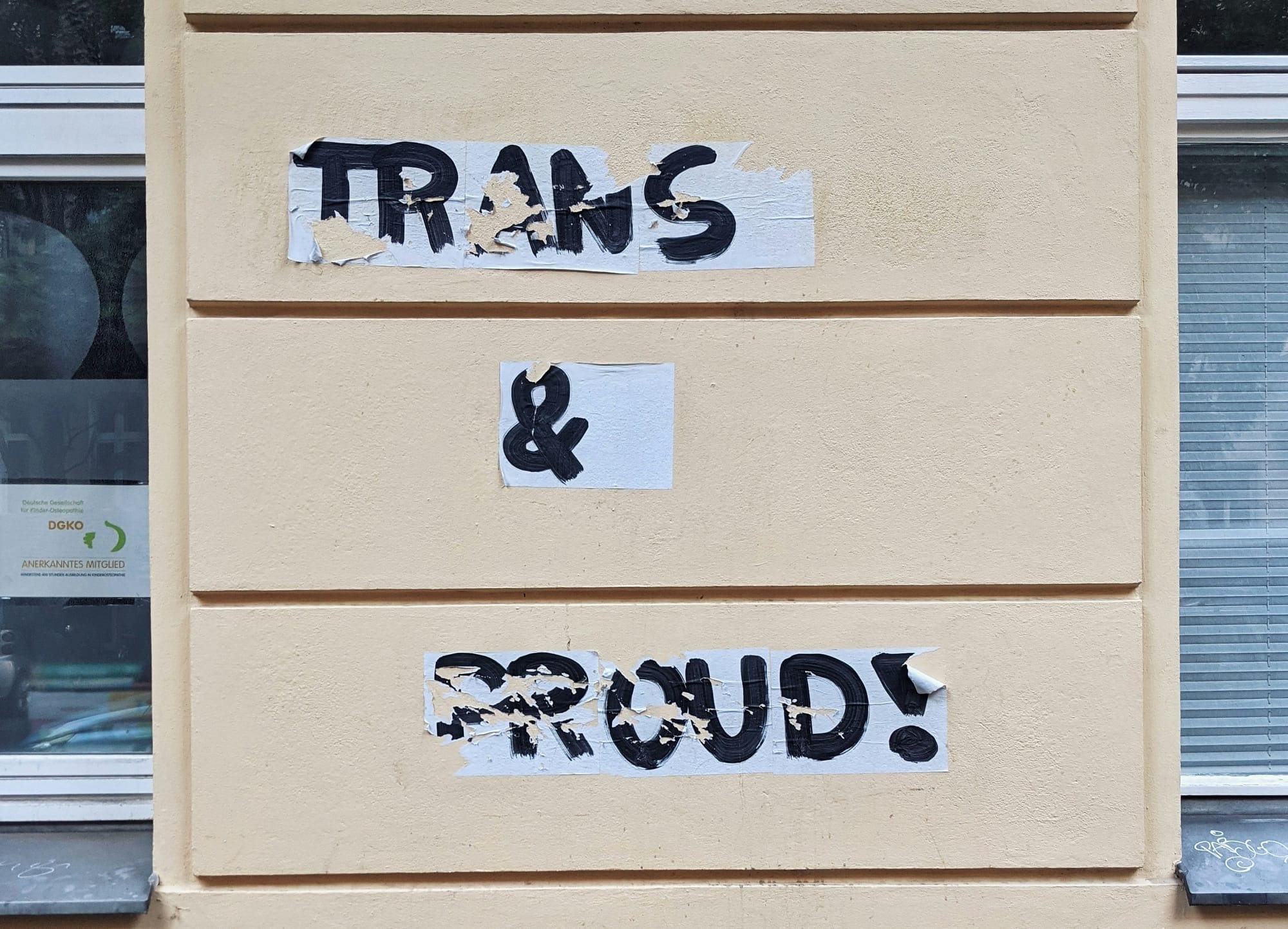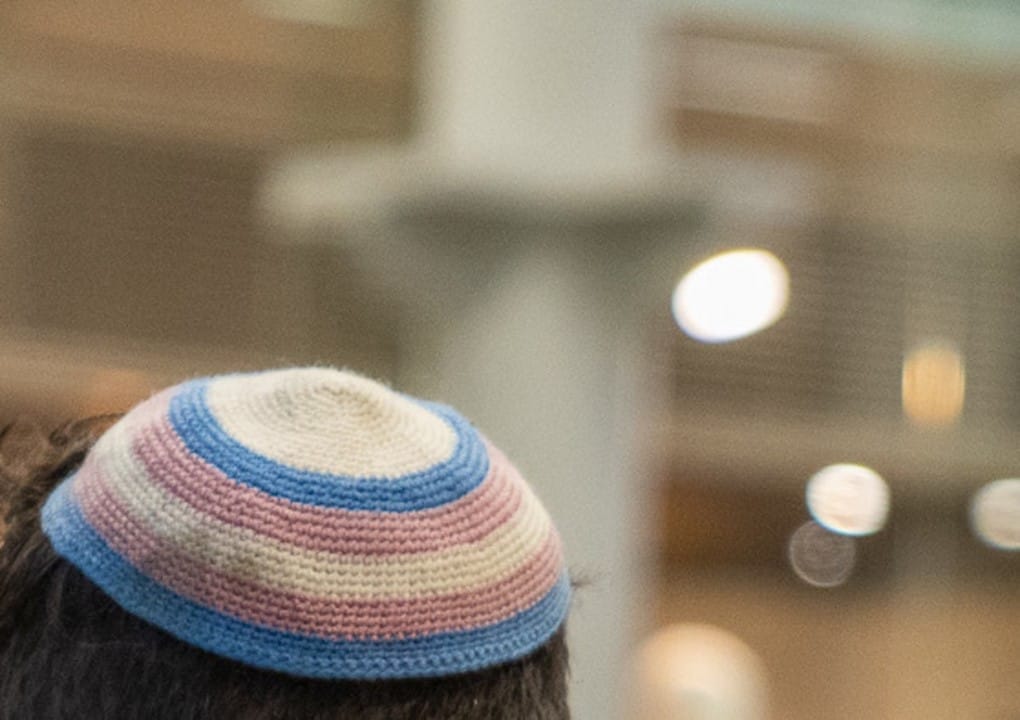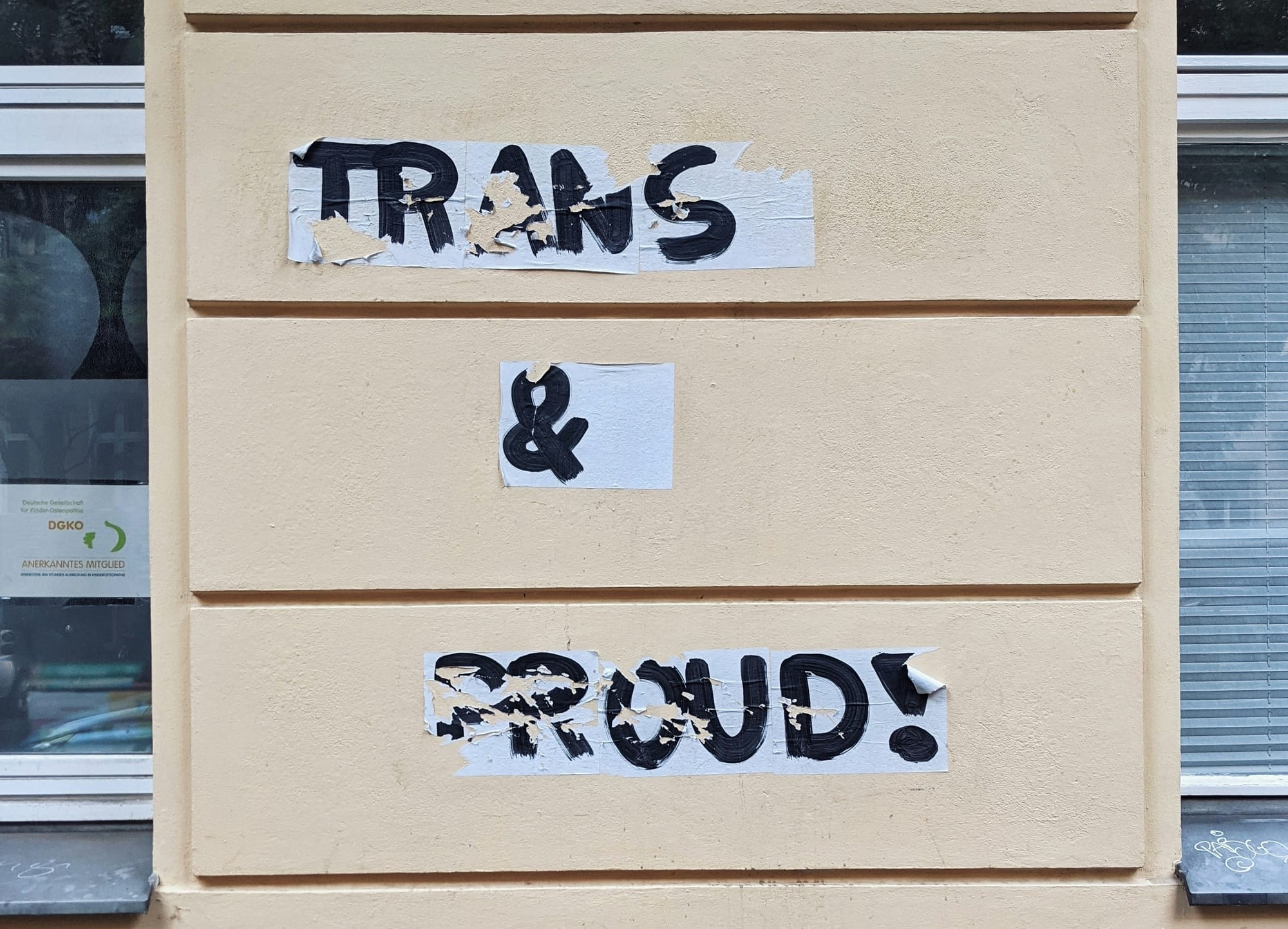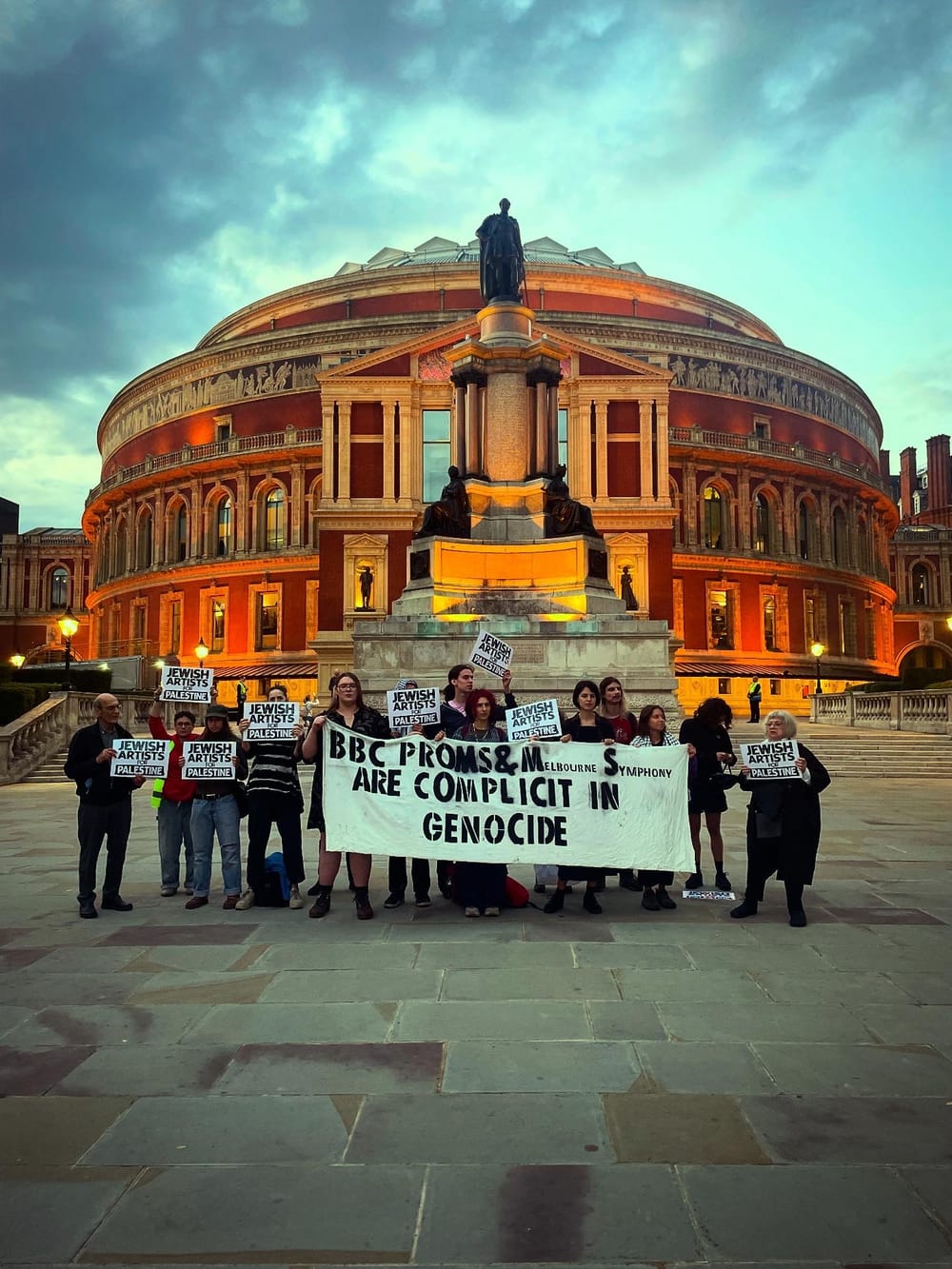
On 27 April, the Equalities and Human Rights Commission (EHRC) issued interim guidance on the practical implications of the recent transphobic UK Supreme Court ruling on the legal definition of a woman.
The EHRC guidance, which is not yet encoded in statute, seeks the full-scale exclusion of trans people from daily life by banning the use of facilities corresponding to their gender at work, school, and in services open to the public. It also allows women or men only, or gay or lesbian only, associations of over 25 people, such as sports teams, to prohibit trans people from membership. In addition, the guidance includes a provision that would bar trans women from any single-sex facilities “in some circumstances.”
The Trans Legal Clinic has condemned the interim guidance as “creating a humiliating, hostile and degrading environment, violating people’s dignity in their everyday life” and stated their belief that the guidance “overreaches the full legal implications of the Supreme Court’s judgment and is not proportionate.”
Today, fourteen LGBTQ+ organisations wrote to Prime Minister Keir Starmer to request an urgent meeting, though last week a spokesperson for Starmer stated he no longer believes that trans women are women.
Looking ahead, the EHRC plans to present an updated Code of Practice to the government by the end of June following a two week consultation with “affected stakeholders” in mid May. Former judge Dr. Victoria McCloud, the UK’s only out trans judge, intends to challenge the Supreme Court ruling in the European Court of Human Rights, while the Good Law Project is raising funds to challenge the ruling with the High Court.
In today’s Pickle, we’ve assembled a collection of our work on trans rights and transphobia, highlighting sections that speak to this moment and how we've arrived here. We encourage you to revisit these stories in full. Be sure to also read a recent piece by Vashti editor Alexandra Diamond-Rivlin in Dazed, published in the wake of the Supreme Court ruling.
Against the rise of gender critical non-fiction
Eli Cugini, 9 October 2024

'Publishing in Britain has a serious transphobia problem, one that has only worsened since an anonymous letter to the Bookseller warned, three years ago, that it was widely tolerated within the industry. More openly anti-trans books are being published with substantial platforms. Many publishing workers are discontented about industry transphobia, but fear online harassment and punishment from their employers if they speak out against it. As such, the story of the anti-trans books industry remains unwritten.
Since 2020, British publishers have released a glut of books that argue that trans people are deluded, mentally ill, or socially dangerous. Some, like Gay Shame by Gareth Roberts, laugh at the idea that trans women are women and call transition surgeries “medically sanctioned mutilation”, while others, like Helen Joyce’s Trans, take a superficially conciliatory tone but state that “humans cannot change sex” and refer to trans women near-exclusively as “males”. Others, such as Abigail Shrier’s Irreversible Damage, characterise transness among adolescents as a “contagion” – i.e. a communicable illness. These books can be found in almost all chain bookshops in the UK; though rarely recognised as such, this is, of course, an immense violation of trans people’s dignity.
Some books in this subgenre advertise in their titles, subtitles and blurbs that transness is in some sense fictional – “Why Reality Matters for Feminism”, “Where Ideology Meets Reality” – while others flaunt provocative visuals of trans people as ruined. The cover used in the US and on UK hardbacks of Irreversible Damage depicts a young child cored like an apple: seemingly a visual realisation of the gender critical movement’s frequently observed preoccupation with “girls’” fertility. The UK paperback replaces this image with a less provocative illustration. No wonder these types of books’ blurbs often sound like they’re advertising hot sauce (“punchy”, “zesty”, “wicked”), or talk about “gasping with laughter” or sighing with relief: they are all stoking feelings about trans people through fear, disgust, anger or sadistic joy. They’ve begun to have that effect before the book is opened.'
‘Again and again’: Transness and recognition
Mizy Judah Clifton, 8 March 2024

'Many trans people, for reasons entirely pragmatic, want to fade into the background. I, meanwhile, “come out” as trans almost compulsively. Less a confession, or a preemptive strike against the possibility of being nonconsensually exposed, this is a desperate request to be recognised beyond the bounds of cisgender masculinity. But, insofar as neoliberal identity politics has reduced “trans” to a special interest group which slots neatly into another crummy binary of cis/trans, I’m not after recognition as trans but instead something altogether more elusive: a kind of trans* recognition. All recognition may be only the “misrecognition you can bear”, as the philosopher Lauren Berlant teaches us, but this mode of recognition – one which, however paradoxically, suspends the urge to nail down its object once and for all – is the only form I can bear.
At my grandmother’s funeral, I practically clung to my mum in the hope that the other attendees – most of whom I’d met countless times over the years at various wedding anniversary parties – would put two and two together and realise who I was. I got mostly blank looks and one particularly angry stare from someone who presumably did manage to put two and two together but didn’t like that the sum equalled “transgender”. I would have spent most of the time wishing one of the graves would open up for me to hide in were it not for the frum rabbi who shook my hand and wished me a long life.
“This is your son?” the Rabbi asked my dad as we walked side-by-side behind the coffin. “Yes – Mizy,” he replied, without batting an eyelid.
I remember the first time my dad pointedly flicked a kippah at me so that we could begin saying Kiddush on Shabbat evening. This is a man who used to give Douglas Murray’s The Madness of Crowds: Gender, Race and Identity pride of place on our bookshelf and once died on the hill of insisting that my wish to be referred to using they/them pronouns was an affront to the rules of English grammar. Yet he has somehow come to recognise me as his son.'
How transphobes became the voice of British Jewry
Sasha Baker, 14 December 2023

'British Jews have a transphobia problem. Given the antisemitism that lies at the core of many transphobic conspiracy theories, one would perhaps have expected to see the organised Jewish community at the forefront of the resistance to transphobia, but recent years have shown the opposite to be the case. In fact, among Britain’s most prominent purveyors of transphobia are a cohort of centrist and rightwing Jewish commentators — the same ones who have marketed themselves as authorities on antisemitism.
Many of these self-proclaimed spokespeople for the Jewish community gained prominence through their attacks on Jeremy Corbyn’s Labour. Their supposed expertise on antisemitism elevated them to national political relevance, which in turn gave them the legitimacy to become active participants in the right’s favourite post-Corbyn culture war: trans rights.
The list is extensive, and includes David Baddiel, who has promoted the book Trans by Helen Joyce; Countdown star and Corbyn critic Rachel Riley, who suggested that “a lot of the attacks on JK Rowling are really because she spoke out for Jews and against Jeremy Corbyn and antisemitism”; as well as former Jewish Chronicle editor Stephen Pollard, right-wing columnist Melanie Phillips, and legal expert Anthony Julius.
Undoubtedly the most prominent Jewish transphobe in the UK media, however, is Sunday Times columnist Hadley Freeman. For years, Freeman has been a vocal proponent of the argument that trans rights are in competition with the rights of cis women and girls. She opposes what she calls “gender ideology”, defined as the belief “that being a woman has nothing to do with biology, but is down to some undefinable inner feeling.” Ideologies don’t have needs or rights, and to Freeman, that’s all being trans is.
Her conspiratorial columns are peppered with invented proponents of gender ideology who must be resisted. Cautious British doctors must oppose Big Pharma and American healthcare norms to deny healthcare to young trans people; editors at major publishers must stand up to the tyranny of queer and LGBTQ-friendly junior staff; transphobic parents must assert authority over their trans children – “Say no and let them hate you,” one is quoted as saying.
Since the Hamas-led 7 October attacks on southern Israel, these same commentators have once again become the go-to thought leaders for educating the wider public about Israel and antisemitism. Naturally, their interventions have included speaking at and promoting the recent “March Against Antisemitism” despite its anti-Palestinian framing and support from sections of the far-right, as well as calling for police to use the full extent of their powers to suppress Palestine solidarity marches.
The continued platforming of these voices as the arbiters on antisemitism in Britain is doing significant harm to both the Jewish and trans communities. So how did we get here?'
Holy chutzpah
Lexie Botzum, 29 May 2023

'On 26 March [2023], the Trans Halakha Project’s Teshuva Writing Collective released its first eleven teshuvot (legal responsas) written by trans and non-binary Jews, providing halakhic frameworks, language and potential answers for trans Jews to live religious lives, located within the mesora (chain of tradition). The teshuvot cover a diverse array of questions, including whether it’s a mitzvah to transition, how trans women might practice niddah (laws of menstrual purity), and whether it’s permissible to immerse in a mikvah (ritual bath) with a binder. Along with these responsas – two more of which are forthcoming – the Trans Halakha Project published Tefillat Trans, a compilation of rituals and blessings for trans lives.
Though halakhic literature has been written previously about trans people, this project is the first instance of material produced by trans people, informed by their own lives, experience and knowledge. At the online launch, Laynie Soloman – co-director of the Trans Halakha Project (along with Rabbi Becky Silverstein) and associate rosh yeshiva at SVARA, which hosts the project – articulated why this initiative is so essential: “I’m tired of experiencing dysphoric halakha […] I want to experience, I want all of us to experience, euphoric halakha. Reading these [teshuvot] reminded me that we don’t need to be solved, we need to be free.”
As Soloman and many of the teshuva writers noted, there’s a vast difference between cis halakhic authorities dealing with transness as an issue to be solved, an identity to be either condemned or “permitted,” and trans Jews writing about, reckoning with, and celebrating what it means to be a trans person living within and practicing these traditions. These teshuvot, Soloman says, “are what happens when we stop asking ‘How can we exist?’ and start asking ‘How can we thrive?’” When asked what makes the teshuvot authoritative, Solomon responded emphatically: “You! If you use them, if you grapple with them, if you learn them – they are real.”'
Sisterly hatreds
Naomi Cohen, 19 May 2022

'Central to gender-critical ideology is the idea that if one simply “follows the money”, one discovers a cabal of Jewish billionaires – namely George Soros, the centre of gravity for contemporary antisemitic conspiracy theories – funding the spread of “gender ideology”, brainwashing people into getting expensive gender affirming healthcare. These theories, originally expounded by fringe US blogger Jennifer Bilek, have since found their way into the mainstream, from Sunday Times bestseller Helen Joyce’s 2021 book Trans to Fox News anchor Tucker Carlson’s nightly political talk show. We have even seen a resurfacing of the blood libel.
The blood libel originated in 12th-century England, with the false accusation that a 12-year-old boy (later canonised as Saint William of Norwich) was been kidnapped and ritually sacrificed by local Jews, sparking a wave of pogroms and state-sanctioned executions in which dozens of jews were killed. “Children sacrificed to appease trans lobby,” claimed gender-critical Times journalist Janice Turner in a 2017 column; a “children’s blood cult” was how Fair Cop, a group established to resist the policing of socially unacceptable views including gender-critical ones, referred to trans children’s charity Mermaids. Gender-affirming surgeries are “ritual cutting” arising from the Jewish practice of circumcision, itself seen as sublimated child sacrifice. Over and again we see children’s bodies figured as needing protection from corruption and mutilation by a “transgender industrial complex” with thinly-veiled Jewish origins.
In the UK and across Europe, the “gender ideology” moral panic has been levied against what is considered to be an excessive intellectualism which runs counter to the common-sense perspective of two immutable sexes. Gender studies as an academic discipline has been attacked the world over as and banned by antisemitic government of Hungary. Judith Butler, the Jewish academic often credited for founding contemporary gender theory when they argued that our ideas of biological sex are informed by our concepts of gender, has been burned in effigy in Brazil. Butler is for many in the gender-critical movement the Jewish intellectual who works alongside the Jewish doctors and the Jewish billionaires to put into action their evil plan of erasing biological sex.'
Access to puberty blockers is a Jewish issue
Isaac Elijah, 31 March 2021

'While a few individual synagogues and communities have celebrated and affirmed trans Jews, there remain Jewish spaces where it is actively dangerous to be out as trans. Svara, the queer radical yeshiva, was founded to provide a specifically queer space for marginalised Jews to come together and learn. Svara’s inclusive, liberatory ethos extends to to its textual interpretations: the yeshiva applies traditional Torah ideas to queer and trans lives. For example, the Talmud teaches that if someone claims to be too ill to fast on Yom Kippur, we should provide them with food, regardless of whether any experts are there to assess their condition. The principle derives from the statement in Proverbs that “The heart knows the bitterness of its soul.” The Talmudic position is that those in pain are the true experts as to the extent of their suffering and know the means to relieve it. Who better to trust about their own suffering, their own lives, than a trans person?
Last November, I helped to organise the first trans-led Trans Day of Remembrance Kabbalat Shabbat service to be held in a UK Reform synagogue. One of the participants, Chava, says that the Keira Bell vs Tavistock verdict will only push trans people to self-medicate, especially those who are poor: “I work to provide access to hormones for trans people outside of the medical system, advising trans people on how they can safely buy hormones and monitor their hormone levels. Trans people already have to wait years for one appointment at a Gender Identity Clinic. Once there, they can face clinicians who box trans people into strict binary categories, often denying our humanity and individuality. The outcome of the court case will do nothing to ensure that trans young people are kept safe, it will only make them feel more isolated and desperate than ever before. Restricting access to HRT and trans medical care doesn’t just impact trans people as a whole: we have to remember that this harms poor trans people disproportionately, especially trans people of colour.”
The same chapter in Proverbs tells us that ‘a truthful witness saves lives’ (14:25). The media’s endless churn of sensationalised stories about trans people has drowned out perspectives from trans people. I want non-trans people to see how our lives change when we’re given medical treatment to fit our needs. I want stories about trans young people with supportive parents who are flourishing at school and with their peers. I want a discussion about medical interventions and transition to include trans people and trans or gender-nonconforming youth as the experts of our own experiences.'
Author

This article was produced by the editorial collective at Vashti.
Sign up for The Pickle and New, From Vashti.
Stay up to date with Vashti.



